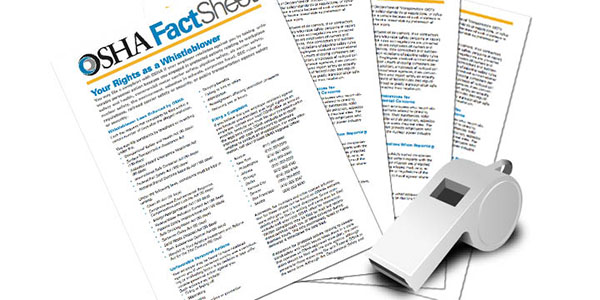 A U.S. Department of Labor board issued a key ruling interpreting federal Sarbanes-Oxley whistleblower law to cover contractors, including accountants privy to financial machinations at corporations.
A U.S. Department of Labor board issued a key ruling interpreting federal Sarbanes-Oxley whistleblower law to cover contractors, including accountants privy to financial machinations at corporations.
The Administrative Review Board of the U.S. Department of Labor ruled that employees of contractors carry the same whistleblower protections under the Sarbanes-Oxley Act that workers have who work for publicly traded corporations and others with reporting requirements under Securities and Exchange Commission rules.
Earlier this year, the Labor Department requested funding to hire an additional 45 investigators to bolster its ability to chase down whistleblower cases, even as whistleblower provisions as part of the Dodd-Frank Wall Street Reform and Consumer Protection Act and the Affordable Care Act also get implemented by other agencies.
In July, a federal judge ruled that Dodd-Frank whistleblower provisions could be applied retroactively due to the precedents set under Sarbanes-Oxley. Courts are still working through an interpretation of Dodd-Frank ”“ earlier this year, a judge ruled in a case involving Fairfield-based General Electric Co. that whistleblower claims could not be filed under Dodd-Frank for allegations of activities in other countries.
Closer to home, the Labor Department case involved a complaint against David Landau & Associates L.L.C., a Fairfield, N.J. forensic accounting company that does business as DLA. An accountant sued claiming he was let go for reporting internal control problems at a DLA client.
The DLA case signals the Labor Department”™s broad interpretation of Sarbanes-Oxley whistleblower protections to encompass non public companies that contract services to public companies, according to attorneys with Jackson Lewis L.L.P., an employment law firm with a Stamford office.
Sarbanes Oxley specifies contractors, subcontractors and agents of companies as protected from any discrimination as a result of reporting internal violations at publicly traded companies with which they do business.
Still, the U.S. Court of Appeals had previously reversed a contractor whistleblower case involving the parent company of Fidelity Investments.
In its own ruling, the Labor Department noted that the Enron scandal that spawned Sarbanes-Oxley involved outside auditors such as Arthur Anderson, and so Congress intended the rule to apply to outside accountants and other professional services companies.
“The (Administrative Review Board”™s) decision in Spinner sets the stage for a potential surge in claims against contractors,” Jackson Lewis attorneys stated in a client brief. “It also represents what appears to be a growing divide in the interpretation of (Sarbanes Oxley) between the DOL and the federal courts.”
Cases involving whistleblowers and allegations of retaliation continue to work their way through the courts, including in Connecticut where a former UBS AG employee and Stamford resident named Mary Barker sued after claiming she was let go in a mass layoff, but also as a direct result of reporting to superiors what she claimed was inaccurate accounting that put the company in jeopardy of violating federal securities law.
As reported by Pullman & Comley attorney Daniel Schwartz in his Connecticut Employment Law blog, in June a federal judge denied UBS”™ motion for summary judgment and at press deadline the case was ongoing.
“As employers conduct risk assessment on reductions in force, employers should not just worry about the typical protected categories (race, gender, disability, age, etc.) but also retaliation and SOX claims as well,” Schwarz stated. “SOX may be new, but it”™s growing up quickly.”



















